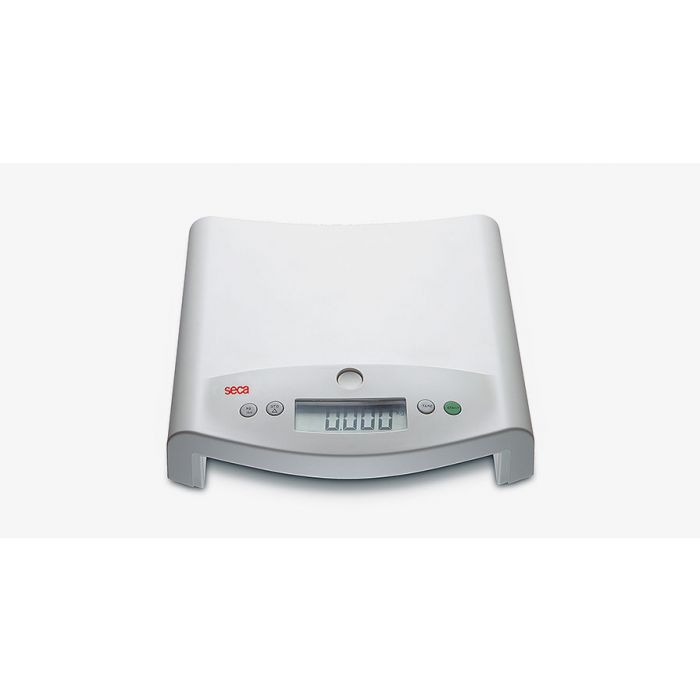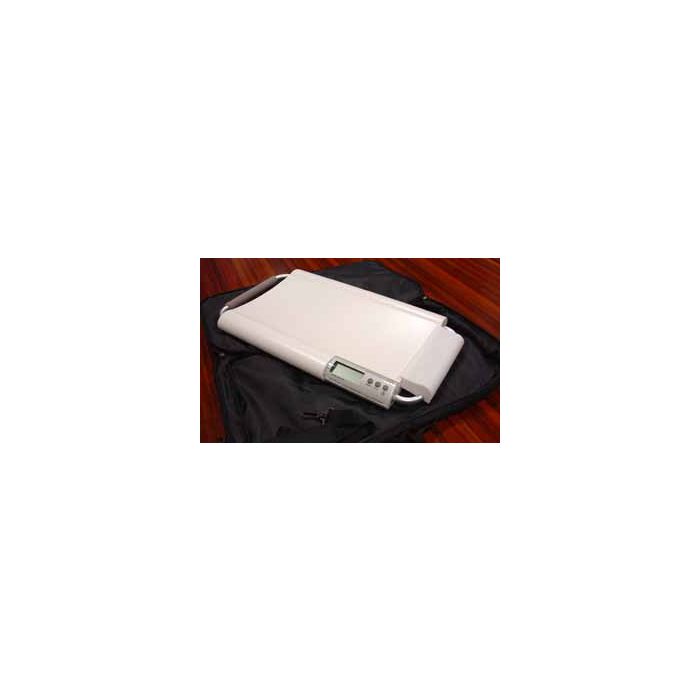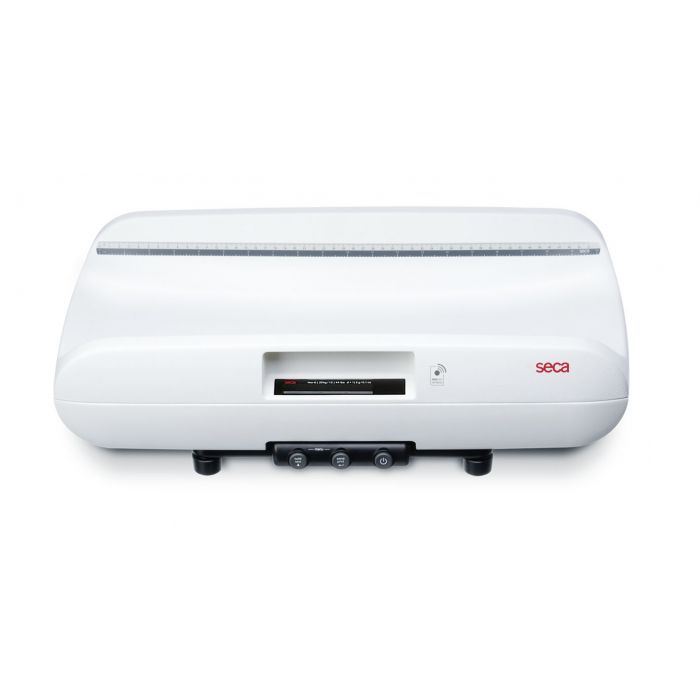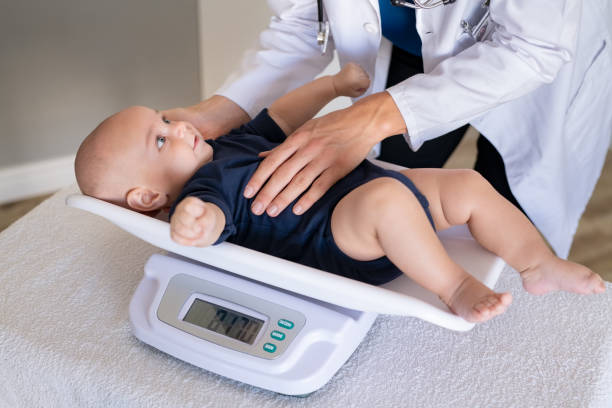As a parent or healthcare professional, ensuring accurate and consistent weight measurements for infants is essential to tracking their growth and development. Baby scales are specialized devices designed to weigh newborns, infants, and toddlers with precision and safety. While many options are available on the market, choosing the right model involves evaluating various features and functionalities that align with your needs. Whether for home use, pediatric clinics, or hospitals, understanding the differences between baby scale models can help you make an informed decision.
Why Accurate Weight Measurement is Important for Babies
Tracking an infant’s weight is critical to assessing their overall health and development. Significant weight changes can indicate growth spurts, feeding issues, or potential health problems. Accurate weight measurement is especially important for premature babies or those with medical conditions, where close monitoring is necessary to ensure they’re growing at a healthy rate.
Infant scales are specifically designed to provide precise measurements for infants, taking into account their small size, rapid movements, and fragility. Unlike regular scales, baby scales include special features such as curved weighing platforms and high sensitivity sensors that cater to these needs.
Key Features to Consider in Baby Scales
When comparing infant scale models, certain features should be prioritized to ensure accurate and convenient weight measurement. Below are some of the most important factors to consider when selecting a baby scale.
1. Accuracy and Precision
Accuracy is the most critical feature of any baby scale. Infants often have very subtle weight changes, especially in the early months, and a scale with high accuracy is necessary to detect even the smallest variations. Most high-quality baby scales have precision to within 5-10 grams, providing dependable readings that help caregivers monitor an infant’s growth patterns.
2. Weight Capacity
Different baby scales have varying weight capacities. While newborns may weigh as little as 2.5-3.5 kg, some babies can weigh over 10 kg by their first birthday. Most baby scales have a weight capacity ranging from 20 to 30 kg to accommodate growth. It’s advisable to choose a scale with a higher capacity to ensure it can be used as your baby grows into toddlerhood.
3. Weighing Tray Design
The design of the weighing tray plays a crucial role in ensuring the safety and comfort of the baby. A well-designed weighing tray is usually curved or contoured to securely hold the infant without the risk of falling. Some scales also offer detachable trays that allow the scale to be used for toddlers as well, providing more longevity.
4. Tare Function
The tare function is an essential feature for baby scales, allowing you to reset the scale to zero even with a blanket, towel, or diaper on the weighing tray. This ensures that the baby’s weight is measured accurately without having to account for any additional items. This is particularly useful in colder environments where covering the baby may be necessary during the weighing process.
5. Hold Function
Babies are rarely still, making it challenging to get an accurate reading if they are wiggling or moving around. A hold function captures the baby’s weight even if they are moving, freezing the most accurate reading for display. This feature is invaluable for parents and healthcare professionals alike, reducing the stress of weighing a restless infant.
6. Digital Display
A clear, easy-to-read digital display is vital for quickly viewing weight measurements. Many baby scales offer backlit displays that are easily visible even in dim lighting. Scales with large, bright displays allow users to read the results without straining, making the process more convenient.
7. Growth Tracking Features
Some baby scales are equipped with additional features like growth tracking or memory functions that store previous weight measurements. These scales allow you to compare current readings with previous ones to monitor your baby’s growth over time. While this feature isn’t essential for all users, it can be a helpful tool for parents and caregivers who want to closely follow their infant’s progress.
8. Portability and Durability
For families or professionals who need to transport their scale between locations, portability is a critical factor. Lightweight and compact models are easier to move and store. Durability is also essential, especially for scales used in medical environments where they need to withstand frequent use. Look for scales made from sturdy materials that ensure long-lasting performance.
9. Power Source
Baby scales can be powered by batteries or electricity. Battery-operated models offer more flexibility in terms of mobility, while electric-powered scales are often more robust and suited for clinic use. Some scales provide both options, giving you the flexibility to use them in various settings.
Popular Baby Scale Models: A Comparison
Below, we compare several popular baby scale models that cater to different needs and preferences, covering a wide range of features and price points.
Seca Baby and Toddler Scale (SE354)
The Seca 354 is a premium baby scale known for its durability and precision. It boasts a sleek design with a curved weighing tray and a weight capacity of up to 20 kg. The tare function and hold function make it easy to get accurate readings even with a squirming baby. Its robust build and reliability make it a popular choice for clinics and healthcare providers.

Pros:
- Durable and robust
- Precise measurements
- Professional-grade accuracy
Cons:
- Expensive compared to other models
Nuweigh Slimline Portable Baby Scale (LOG244)
The Nuweigh Slimline Portable Baby Scale LOG244 is a practical, portable option for parents and healthcare providers alike. With its lightweight and slimline design, this scale is easy to transport and store, making it ideal for use both at home and on the go. Despite its compact size, the LOG244 offers a weight capacity of up to 20 kg and precision to within 10 grams, ensuring accurate measurements for newborns and infants.
This model is equipped with a tare function, allowing you to weigh the baby with a blanket or diaper without affecting the accuracy of the reading. The scale’s curved, contoured tray provides comfort and safety for the baby during the weighing process. Additionally, the bright digital display makes it easy to read the weight from various angles.

Pros:
- Portable and lightweight
- Tare function for easy adjustment
- Affordable and user-friendly
Cons:
- Slightly less durable than larger, professional models
- Limited additional features compared to higher-end models
High Precision Baby Scale – Seca SE727
For those who need the highest level of precision, the Seca SE727 High Precision Baby Scale is an outstanding option. Designed with medical-grade accuracy in mind, this scale provides readings to an exceptional level of precision — as low as 1 gram. With a weight capacity of 20 kg, it’s suitable for both newborns and infants. The Seca SE727 is often found in clinics and hospitals, where accuracy and reliability are paramount.
This scale features a hold function that locks in the weight, even if the baby is moving, ensuring accurate results every time. The high-resolution digital display is easy to read, and the scale is ergonomically designed with a spacious and comfortable weighing tray. Additionally, the scale is equipped with a tare function for removing the weight of any additional items like blankets or diapers.

Pros:
- Incredibly high precision (1g increments)
- Durable and reliable for long-term use
- Ergonomic and comfortable for the baby
- Trusted by medical professionals
Cons:
- Higher price point
- Heavier and less portable than some home-use models
Choosing the Right Baby Scale for Your Needs
When selecting the best baby scale, it’s important to evaluate your specific needs. For parents looking for a reliable scale at home, ease of use, comfort, and accuracy should be prioritized. Models like the Seca or Nuweigh offer excellent value for money and long-term use as your child grows. For healthcare professionals or those requiring higher precision, Seca 354 might be more suitable due to its professional-grade accuracy and durability.
Also Read: The Importance of Accuracy: Tips for Calibrating Your Baby Scale
Conclusion
Baby scales play a crucial role in monitoring the growth and development of infants. By understanding the key features and comparing different models, you can make an informed decision that ensures accurate and stress-free weight tracking. Whether you’re a parent or a healthcare professional, investing in the right baby scale can provide peace of mind and ensure the healthy growth of the child.

